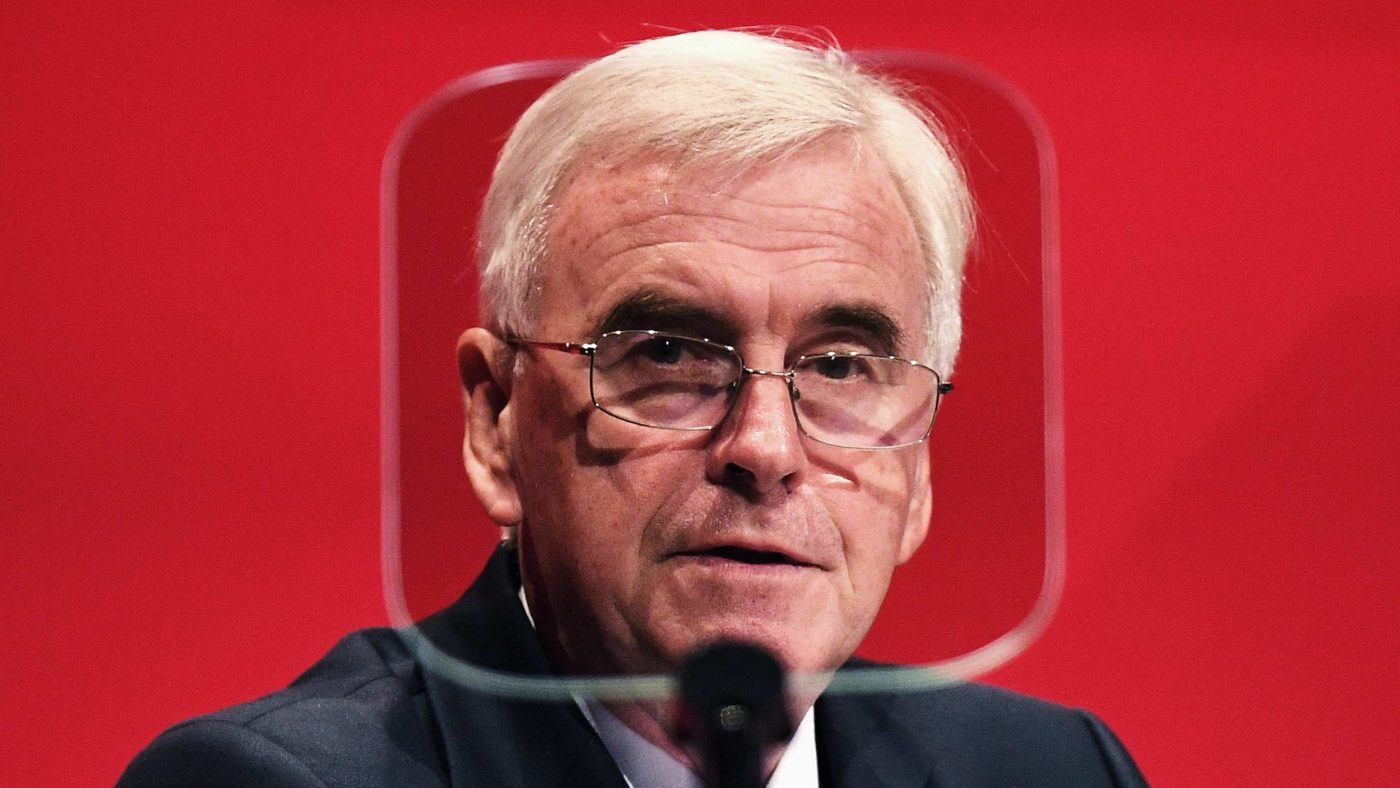John McDonnell’s latest suggestion, made in a wide-ranging lunch with the FT is that Labour will take action on “offensive” bankers’ bonuses.
While this is typical of the Shadow Chancellor, it’s worth briefly looking into what a crackdown on bonuses might actually entail. Though McDonnell talks about £15bn being “paid out”, a lot of bonuses are in the form of shares, and rules introduced in 2015 mean banks have seven years in which they can ‘claw back’ bonuses paid out to senior executives.
As financial journalist Sarah Butcher has pointed out, that means cracking down on bonuses could see the best paid bankers end up getting more of their salary in cash, rather than shares, which is probably the last unintended consequence McDonnell had in mind.
He’s certainly got form for proposals that sound superficially attractive but would actually have far-reaching, economically debilitating consequences. Take the idea that 10% of companies’ shares should be handed to their workforce. It makes for a nice populist soundbite, but delve into the detail a bit and it becomes clear that this is just a massive stealth tax on business, with a few hundred quid bunged to “the workers” as window-dressing.
Or there’s the recent idea of a tenants’ right to buy for the private sector, which again has the benefit of sounding like it’s on the side of ordinary people, but would almost certainly lead to an even more acute shortage of rental housing, while doing nothing for the supply problem at the root of our housing crisis.
But even if clamping down on bonuses isn’t a particularly novel proposal, the language McDonnell couches it in is instructive.
“If it continues and the City hasn’t learnt its lesson, we will take action, I’ll give them that warning now… It’s become part of the culture and it is so separate and distinct and isolated from the rest of the real-world economy and that’s why people are so offended by it.”
There’s quite a lot to unpick here. There’s the suggestion that financial services are not part of the “real-world economy”, even though they employ millions and are integral to our prosperity. Then there’s the schoolmasterly tone about the City having to “learn its lesson”. Perhaps most egregious is the idea that people being “offended” by something is grounds to make policy on it.
Rightwingers tend to instinctively react to this kind of banker-bashing by calling it the ‘politics of envy’. There’s an element of truth to that, of course people get angry that others are earning vast sums of money when they are struggling to get by. But with McDonnell himself, it seems less like envy than the settling of scores – the politics of vengeance perhaps, focused as much on retribution and redistribution.
It’s a thread that runs throughout his politics. There’s the gleeful retelling of an anecdote about Esther McVey, which ended with the punchline “why aren’t we lynching the bitch?”. More sinister was his remark about Conservatives that “they are social criminals and one day, I warn you, we will try them”. Then there’s the canonical “I’m a Marxist” quote, in which he responded to the financial crisis by saying “I’ve been waiting for this for a generation!”.
That last one really does give an insight into the unguarded, unvarnished mindset of the Shadow Chancellor. A huge recession, job losses and a huge hit to the Treasury are presented as a golden opportunity to be gleefully seized upon. The tenants’ right to buy policy, while billed as an attempt to tackle the housing crisis, stems more from the hard left’s deeply entrenched hatred of landlords as a rentier class.
The important question is what the best way to take on this kind of populist, tubthumping leftwing radicalism, given how well it went down with many voters in 2017?
I’ve written elsewhere that it’s pointless trying to claim that Corbyn and McDonnell are trying to turn Britain into Venezuela – it’s not a comparison that has any resonance for the vast majority of British voters. Similarly accusations of being a terrorist sympathiser, while entirely true of both men, clearly did not do Labour that much harm two years ago.
Perhaps the best way to tackle their brand of revanchist socialism is to keep it simple and concentrate on what most people quite rightly care about, their own services and their standard of living.
You can’t expect voters to remember a slew of facts and figures, nor are they bothered about something being ‘liberal’ or ‘socialist’ if it means they get a better service or higher wages. So one line of Tory attack might be to repeat the estimate from my colleagues at the Centre for Policy Studies that Labour’s renationalisation plans would mean borrowing an extra £176bn – equivalent to £6,500 for every household in the UK. After all if the 2016 referendum taught us anything, it’s that a figure repeated often enough can take hold in people’s minds.
What may work in their favour this time is that the threat of a Labour victory, even if only a minority government, is large enough for their plans to come under a bit more scrutiny. Back in 2017 Corbyn and McDonnell certainly benefited from a lack of focus on their specific tax and spending agenda – this time, with the polls veering all over the place, we can hope for a lot more attention on exactly what their plans would cost the British economy.
CapX depends on the generosity of its readers. If you value what we do, please consider making a donation.


